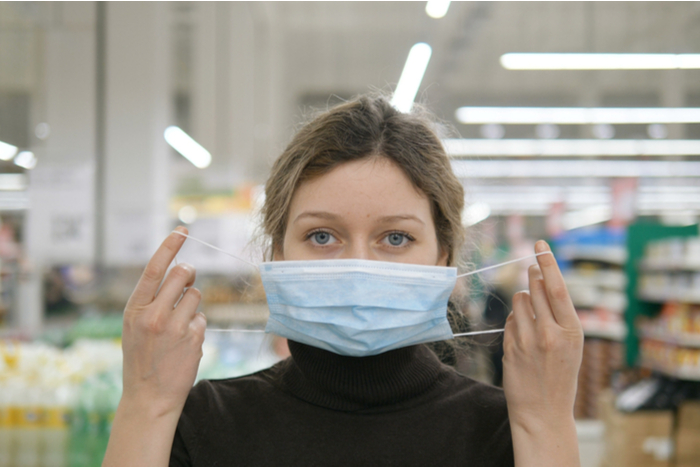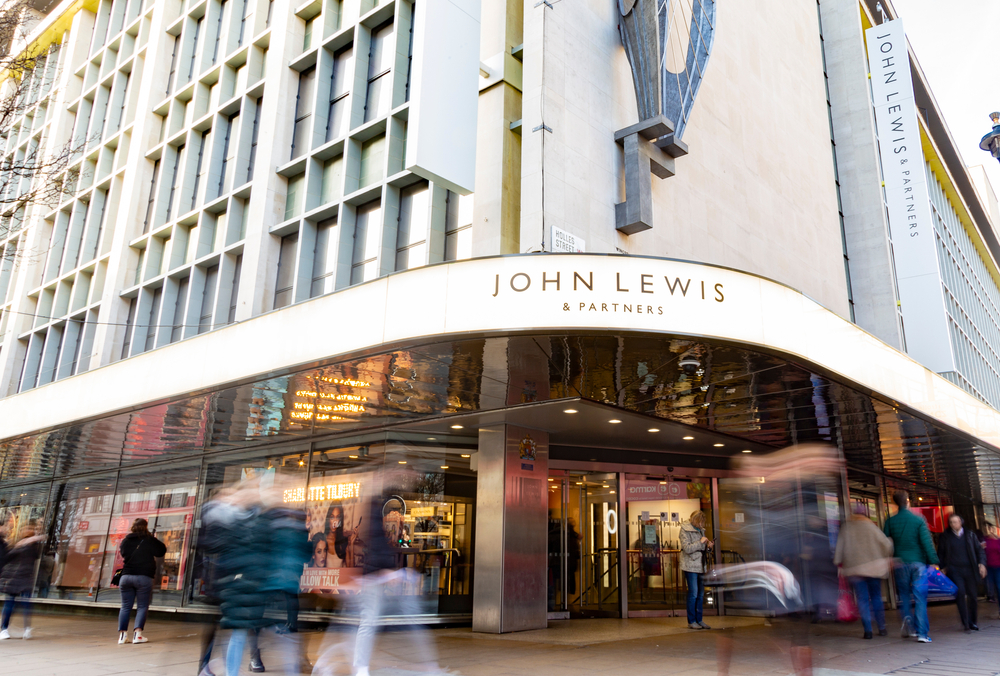It’s no secret that the UK is in uncharted territory – especially when it comes to retail.
Prime Minister Boris Johnson recently highlighted that coronavirus was “the biggest threat this country has faced for decades”, and retailers are subsequently faced with increased pressure as the pandemic wreaks havoc across supply chains and shoppers desert high streets and shopping centres.
The coronavirus crisis has had an impact on almost every sector in retail – grocery, ecommerce, fashion, luxury and more – although some have been faring better than others in the midst of the chaos. Especially online and grocery.
Product-wise, sales of staple products – such as toilet roll, baked beans, pasta – have been soaring. In a bid to counteract hoarding and panic buying, grocers are now working with supply chains to deliver more in-demand items as part of the government’s “feed the nation” plans.
The pandemic is also testament to whether retailers can prosper when the unknown strikes. And those that can deliver, both literally and figuratively, might be one step ahead of others.
In recent days, retailers – especially grocers and others classified as “essential” that can remain open during lockdown – have had to make adjustments. Whether it’s shutting down non-essential counters or placing two-metre floor markers to encourage social distancing, these retailers have accepted what seems to be hour-by-hour changes in a bid to keep their businesses running.

Before the government’s order to shut all non-essential services, Next chief executive Lord Simon Wolfson last week claimed that “no one wants to buy clothes to sit at home in”. Sairah Mojib, head of marketing at Widen told Retail Gazette that “this didn’t stop Jack Wills from promoting its loungewear lines in emails titled ‘WFH? We have your wardrobe covered’”.
VoucherCodes found that there had been a whopping 319.56 per cent rise in searches for loungewear from those browsing for offers in the last month, especially since the government advised Brits to stay home before the lockdown measures were even announced earlier this week.
Undoubtedly, while some fashion retailers will advertise loungewear to suit those working from home, the pressure of delivering these orders could prove challenging. And while fashion retailers’ overall performance amid the pandemic remains uncertain, the grocery sector is experiencing a huge surge in sales.
However, supermarket chains have had to put restrictions in place to ensure customers’ needs and safety are prioritised over profits. For example, almost all of them have had to ration their products – both in store and online – to prevent customers from hoarding after fears of the pandemic prompted a wave of panic-buying.
“The volumes of food that’s usually bought by millions outside the home is now bought in grocers”
Despite the restrictions, grocers are arguably the most secure businesses amidst the coronavirus crisis, as consumers increasingly ditch discretionary spend and shift towards necessities instead.
“With millions working from home and schools closed to most, the huge volumes of food that would normally be bought and consumed outside the home is now being bought in supermarkets and prepared by households,” Nottingham Business School retail research associate Nelson Blackley told Retail Gazette.
“It’s clear that in general the grocery sector is doing extremely well with huge increases in demand for many products.
“Time will tell whether this is genuine increased volume or just reflects demand being pulled forward because of concerns about on-shelf availability.”
He added there were non-food “retail winners” – those that sell hand disinfectants, soap, wipes and any antibacterial cleaning products.
“Retailers such as Boots, Superdrug, and Savers will have seen incremental demand for these types of products, although again their overall business is likely to have suffered because of lower town and city centre footfall,” Blackley said.
Meanwhile, online retail giant Amazon was faced with the challenge of having to limit third-party sellers who were ramping up prices and profiting from panic buyers during this time.
Despite this, it’s arguable that online-only retailers will fare well in the crisis thanks to the convenience they provide for those staying home, and the absence of operational costs that come with a store estate. However, a full picture of how they are performing overall remains to be seen, especially amid growing concerns of warehouse workers’ safety where social distancing measures may difficult to implement.
“Consumers are less likely to make physical status purchases as they’re forced to stay home”
On the other hand, multichannel retailers – those with both a physical and online presence – are set for a difficult period ahead, even if their online sales offsets the total lack of footfall from deserted high streets.
In the early days of the Covid-19 outbreak, luxury retailers acknowledged the threat it represented to the sector.
Prada said it had “interrupted” its growth, Burberry felt the impact after closing Chinese stores before replicating it globally, Gucci had to close its Italian factories when the virus brought the country to a standstill, and luxury department stores Selfridges, Liberty London and Harrods closed their doors as confirmed cases in the UK escalated shortly after Covid-19 was declared a pandemic.
Arguably, the reason why the luxury sector was initially impacted is because of the amount of affluent Chinese shoppers it attracts. With the outbreak starting in Wuhan, China, many luxury retailers temporarily shut their doors in the country for weeks before Covid-19 spread around the world.
Luxury retailers were further impacted when the outbreak hit Italy and France, two countries that house a raft of luxury fashion retailers and labels, such as Prada, Versace, Gucci, Louis Vuitton, Yves Saint Laurent, Armani and Chanel.
Emma Bennett, senior strategy director at branding agency FutureBrand said the mid-market to premium retail sector is also expected to take a big hit, with economic and production uncertainty adversely impacting trading across all categories.
“An early victim of this was Laura Ashley,” she said.
Indeed, the lifestyle retailer became the first UK retail casualty as a result of the coronavirus pandemic when it fell into administration earlier this week.

It filed for administration on the same day the UK was placed in lockdown on Monday – leading to the permanent closure of 70 stores and 721 job cuts. Laura Ashley previously operated 150 stores in the UK and employed around 2700.
The retailer said the coronavirus crisis “had an immediate and significant impact on trading, and ongoing developments indicate that this will be a sustained national situation”.
Meanwhile, one sector that is expected to bear fruit from the crisis is the gifting sector.
With Mother’s Day having already taken place amid the crisis, Easter is less than a month away and Father’s Day is not that far off, either. These are prime holidays where consumers either give cards, and sometimes gifts, to one another.
The Gift Card & Voucher Association told Retail Gazette that the outbreak has contributed to a significant shift in how consumers give and receive gifts across the UK.
“Due to the pandemic, consumers are increasingly opting for gifting solutions that minimise contact, can be sent instantly, and enjoyed at a later date,” a spokesperson said.
However, online gifts retailer Moonpig said it was putting “a number of controls in place in production facilities to minimise access to the production area to critical staff only”.
With Moonpig being online-only, NEOMA Business School retail professor Daniele Pederzoli said there were issues concerning click-and-collect activities when it comes to ecommerce.
“The increase in customer demand creates disruption, out-of-stock and a need to increase the number of slots available,” he explained.
Simon Bonney, partner at business advisory firm Quantuma, said: “For online retailers who have seen an overwhelming demand for their product, the opportunity is to a large extent countered by challenges in their supply chain and a lack of infrastructure to deal with so many consumers.”
On its website, Moonpig wrote: “We are ensuring that everyone who handles customer products is following the latest guidance given by the government and health authorities.
“Apart from the cards that are made to order, all current products advertised on the website have been stockpiled some time ago and are currently stored in secure warehouses where the above controls have also been implemented.
“We are also actively working with our delivery partners to implement social distancing wherever possible by leaving deliveries on doorsteps.”

With coronavirus changing the way retail operates on a day-to-day basis, both staff and consumers are faced with immeasurable uncertainty.
Amidst the chaos, retail analysts remain fearful that retailers that close temporarily as a result of the lockdown may not reopen their doors. According to new figures from the Centre for Retail Research, more than 20,600 stores are expected to have pulled their shutters down for the final time by the end of the year – a massive leap on the 4547 that closed in 2019.
Speaking of John Lewis, which closed all 50 of its stores, Blackley expressed concern over how many would re-open once the lockdown is lifted.
“We know they were all under review over the next six months, it seems to me more likely that those currently struggling will just never reopen,” he explained.
“The same for Debenhams who, at the time of writing, are seeking further huge rent reductions and threatening a second CVA.
“It’s hard to see all but a few of their remaining department stores recovering from an extended closure, as well as House of Fraser, particularly given their city centre locations where footfall has fallen off a cliff in recent weeks.”
For retailers to adapt during this chaos, many – particularly those relying on bricks-and-mortar sales – will have to recognise there may be a real shift in the reliance on online shopping following the lockdown. This is because consumers who have previously not transitioned to online shopping may recognise it is a viable alternative.
At this stage reassuring the customer has never been so important. Rather than driving traffic to a physical store, the communication retailers should now be on how fast delivery will be, or if they have a certain item back in stock. Even so, it’s probable this could change given growing trend of high street retailers halting online operations to keep their staff safe during the pandemic.
Yet for independent retailers suffering during this time, such as bookstores or small fashion labels, now is the time to review online marketing efforts – whether this is a performance marketing strategy, user experience of the website or content strategy.
Click here to sign up to Retail Gazette‘s free daily email newsletter


















